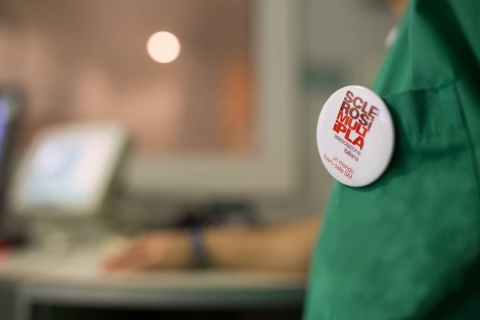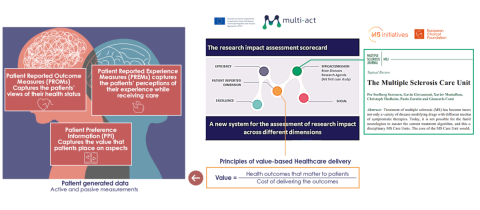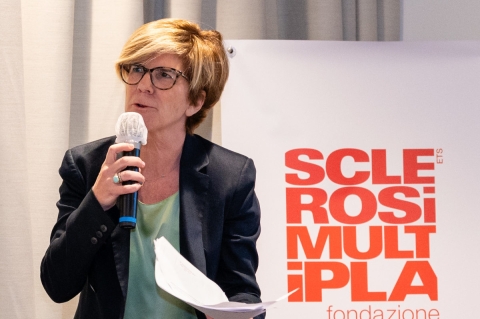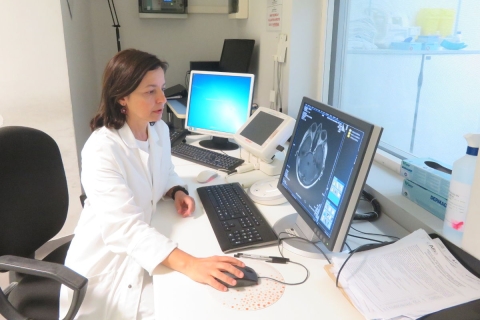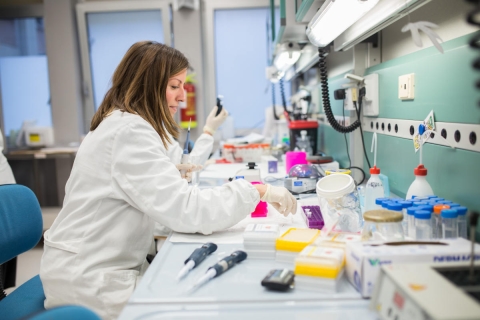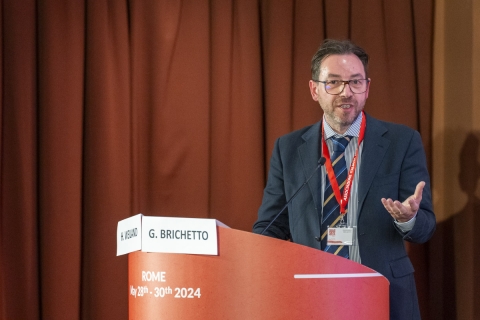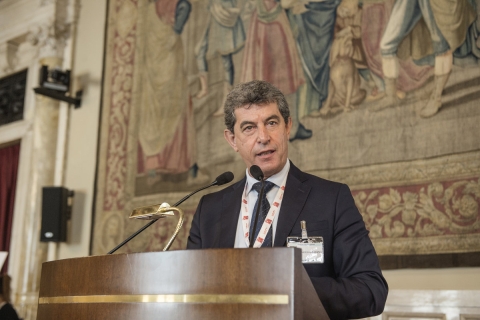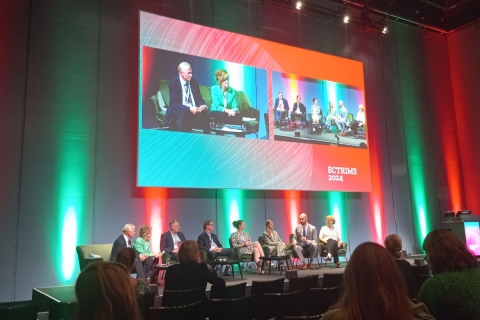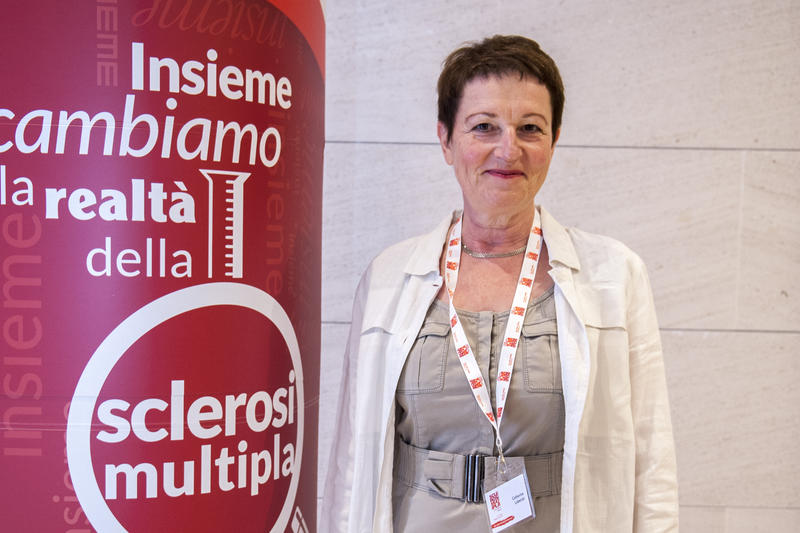
The conference taking place these days brings together leading multiple sclerosis (MS) experts from European and American: this year the ECTRIMS conference is organized in association with ACTRIMS. Paris is the city where doctors, scientists, nurses and patients are meeting over the course of these four days - from October 25 to 28 - to discuss diagnosis, therapy and quality of life, as well as basic research, remote monitoring tools and much more. We have asked Congress organizer Catherine Lubetzki from the Department of Nervous System Diseases, Hôpital Pitié-Salpêtrière of Paris to explain the main developments that will be discussed.
Professor Lubetzki, how many people will participate in the Congress?
«In all, we've surpassed 10,000 participants, including also the people involved in the organization. Scientists and clinicians constitute about 9,000 participants, of which two thirds are clinicians and one third scientists. Around 150 are nurses. There are numerous MS experts from all over the world: this year the Congress is organized together with the American association, with which there is a close ongoing collaboration that is not limited to the joint Congress that takes place every 3 years. Also important is the presence of the associations that have established consortia and projects from one side of the ocean to the other, such as the International Progressive MS Alliance, which is a good example of worldwide collaboration involving researchers, patients and companies.»
What is new in this edition? What kind of imprint did you want to give?
«ECTRIMS has changed over the last 10 years. Previously, it was very had a strong clinical orientation and discussions focused on trial results. Progressively, the clinic has made room for research, and today I can say that there is a balance between clinical research and basic research, between clinicians and scientists who can interact at this Congress with the common goal of finding solutions for people with MS. In addition, we are working to renew our ranks by bring in young speakers, and above all, to maintain gender balance, which I consider to be very important. Research, youth, gender, I wanted to insist on this.»
What new developments will be presented?
«Many new topics that will be discussed over these days. In the field of neurobiology, several sessions will focus on tissue repair and protection by following two strategies: one strategy is to analyze the role of the nervous system in repair, highlighting the existence of repair components that can be exploited; the other is to investigate whether brain activity can be exploited to promote repair. We will discuss also gray matter: for a long time we thought of MS as a disease of the white matter, but now we know that also gray matter plays an important role in its genesis. We will also address the topic of diagnosis and monitoring, with sessions on new imaging techniques that allow us to better understand how the disease starts and evolves, and to determine the effectiveness of drugs. Today, using these new methods we are able to see individual components of the central nervous system such as neurons, and to measure processes such as myelin repair and innate immune response. From a clinical point of view, there will be several important presentations: one on new diagnostic criteria, the result of an expert working group that have updated the criteria in light of new evidence; new Guidelines will be presented, first from the European society and then from the American society. Of course there will be room for the results of clinical trials and drug safety reviews.»
Progressive forms of MS are one of the great challenges that research faces. How will this be addressed at ECTRIMS?
«Through the Progressive Multiple Sclerosis Alliance, the entire scientific community, together with patients and companies, are working hard to find solutions for people suffering from progressive disease. During the conference, a specific session called "Hot Topic 1: Progressive MS Alliance: What's New" was dedicated to this issue; in addition, many other presentations and posters will address various themes related to the management of this phase of the disease. For example, we will discuss the results obtained with the first drugs for progressive MS, which are encouraging, but so far provide small improvements. Currently, the Alliance's first goal is to understand the mechanisms underlying progression; the second is to develop reliable outcome measures; the third is to promote rehabilitation therapy.»
There are sessions in the program dedicated to paediatric MS and Patient Reported Outcomes, topics that are strategic priorities for the International Federation of MS and members of MS societies. What developments can we expect in these areas?
«Historically, children have not been studied, but things are changing in recent years, and several studies will be presented at the Congress on both disease genesis and development and on therapy. It has long been known that MS can arise in paediatric patients, but we were not able to diagnose it adequately and many cases were not recognized and registered for treatment. Now that we are able to do so, we have observed a greater incidence of the disease in children; however, currently we do not know if this is due to our improved ability to diagnose the disease even in the youngest children or to an actual increase in disease frequency. There are many things we still do not know about MS in very young children, and we will discuss this during the sessions: for example the role of gray matter and brain atrophy, how the disease changes according to age, the influence of sex in the evolution of the disease. Another highly regarded topic is Patient Reported Outcomes, whether in the form of traditional or digital data. These are key tools for understanding the impact of therapies on quality of life, but I think the challenge is to integrate the two components - qualitative and quantitative - to obtain greater accuracy. If we ask a patient who is entering the progressive phase of the disease how his walking ability is changing, we get a qualitative response that can be integrated with the objective data obtained from digital device monitoring to provide greater accuracy. In this way, the experience of people with MS becomes central to developing the correct therapeutic pathway.»
Much is being said about personalised therapy. In what way can this change the life of a person with MS?
«MS is an extremely heterogeneous disease that can take very different paths depending on the patient: some enter the progressive phase very quickly, others take years; once in the progressive phase, disability can progress within a few months or years. What drives this variability is still a mystery to us. It is therefore difficult to determine how the disease will progress when we diagnose it. The task today is to conduct a multimodal evaluation of the patient, including not only a clinical assessment, but also imaging, biological and genetic examinations, with the goal of understanding the type of disease as soon as possible. In this sense, I would not speak of personalized but stratified medicine, not for individual patients, but for groups of patients. However, the objective is equally important: identify the type of disease and its outcomes as soon as possible so that people can be directed to the most effective treatment path.»


